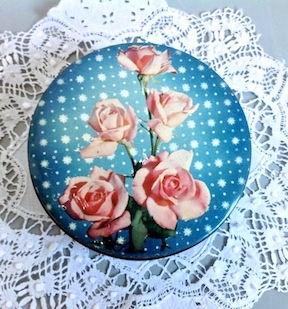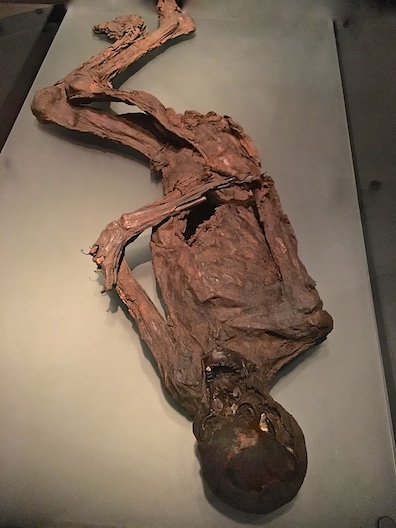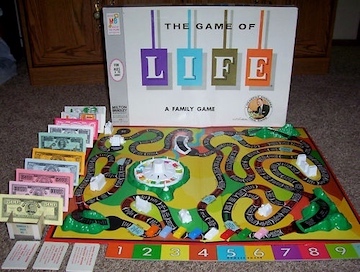“Maybe it’s not just the universe that expands and contracts,” [Leonard] said. “Perhaps the same applies to us…I feel myself getting smaller. I feel quieter and more…invisible. There is this palpable sense of physics; that my life is being pulled inwards. One thing has led to another and now I feel that if I don’t do something, I’ll just carry on some minor harmless existence.”
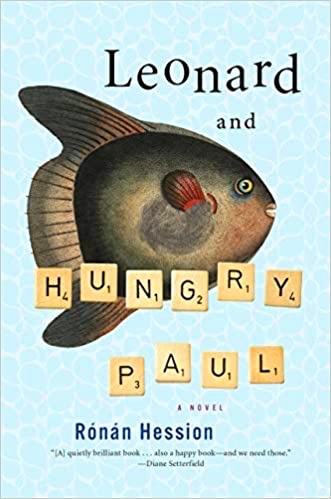 Leonard, now in his early thirties, has been a quiet person all his life. Even when he was a young school child, his mother often had to “take his side against ornery teachers who complained that they found it impossible to get through to him.” At parent-teacher meetings, his mother would explain that like his deceased father, Leonard “just lacked a Eureka face.” As he grew up, his relationship with his mother became a sort of partnership, one in which he kept her company during her late years. Her death left him virtually alone, the only child of two parents who themselves were only children. Leonard works by himself writing children’s encyclopedias, and he is not really interested in meeting new people – “nothing made him feel lonelier these days than the thought of spending time in the company of extroverts.” His only friend is an equally introverted young man, also in his early thirties, named Hungry Paul, considered his mother’s “sunfish,” a “large, lopsided, sideways swimming fish,” which she had seen at the aquarium and “adopted” because she knew nobody else would pick it as a favorite. His father has always been uneasy with Hungry Paul, feeling that he himself “had barely enough maleness to get him through his own life, never mind imparting it to a son.” Now an adult, Hungry Paul has no idea of what he might want to do with his life. He spends a couple of mornings a week filling in as a substitute mail carrier for the post office and makes occasional volunteer trips to the hospital to chat with patients, or simply to hold their hands.
Leonard, now in his early thirties, has been a quiet person all his life. Even when he was a young school child, his mother often had to “take his side against ornery teachers who complained that they found it impossible to get through to him.” At parent-teacher meetings, his mother would explain that like his deceased father, Leonard “just lacked a Eureka face.” As he grew up, his relationship with his mother became a sort of partnership, one in which he kept her company during her late years. Her death left him virtually alone, the only child of two parents who themselves were only children. Leonard works by himself writing children’s encyclopedias, and he is not really interested in meeting new people – “nothing made him feel lonelier these days than the thought of spending time in the company of extroverts.” His only friend is an equally introverted young man, also in his early thirties, named Hungry Paul, considered his mother’s “sunfish,” a “large, lopsided, sideways swimming fish,” which she had seen at the aquarium and “adopted” because she knew nobody else would pick it as a favorite. His father has always been uneasy with Hungry Paul, feeling that he himself “had barely enough maleness to get him through his own life, never mind imparting it to a son.” Now an adult, Hungry Paul has no idea of what he might want to do with his life. He spends a couple of mornings a week filling in as a substitute mail carrier for the post office and makes occasional volunteer trips to the hospital to chat with patients, or simply to hold their hands.
With two main characters who have little to suggest that their stories will become the charming, funny, insightful, and un-put-down-able chronicles that eventually evolve, Irish author Rónán Hession demonstrates his own creativity and his own ideas regarding communication and its importance or lack of it in our lives. He ignores the generations-old traditions of boisterous Irish writing and non-stop action in favor of a quiet, kindly, and highly original analysis of his characters and their unpretentious and self-contained lives. In this way, he draws in his readers and makes them identify, however impossible that may seem, with two young men whose enjoyment of the small moments makes them less needful of communicating, especially with more worldly, socially active, and often less thoughtful people. For Leonard, the death of his mother leads him to begin an exploration of life; for Hungry Paul, the imminent marriage of his sister, with whom he has been close, inspires him to think about changing his own life.
Surprises in the lives of these developing characters are so important that I will not discuss much about the plot for fear of spoiling some of the fun, but a few minor examples of the characters’ thinking reveal much about who they are. The author provides meaningful detail throughout, and the tempo of the action creates plenty of emotional drama and numerous “ah-ha” moments. On one occasion, Hungry Paul’s mother asks him to take a tin of Roses sweets to the nurses of the hospital on her behalf, and he takes off, so uninvolved in the task itself that he forgets the tin. He returns home, grabs the tin, and heads back to the hospital. On the way he discovers that the tin is a year out of date, and he is upset at the “injustice.” He changes course, goes to the supermarket instead, and in his quest for satisfaction from several employees regarding the out-of-date purchase, he stimulates the curiosity of several other shoppers who have also had disappointing experiences there. For the first time, Hungry Paul has a sense of leading a “crowd” – and he feels good about it. When the manager opens the tin to inspect the “out-of-date” toffees, however, everyone, including the interested shoppers, is shocked to discover that the tin has been reused, is not new, and contains something else entirely. Laughter erupts from the crowd, and Hungry Paul is so visibly disappointed that the manager is particularly kind to him, giving him an Easter egg in sympathy – he could tell “he was dealing with a man beset by tragicomedy.” Hungry Paul will have to wait a bit longer for another bright moment.
Leonard’s life as a writer of children’s encyclopedias also takes a turn during the novel. He falls for a young woman, the fire warden at the place where he works. They have a couple of innocent chats, and Leonard suggests that they have a lunch date – and a visit to the museum to see the “bog bodies” on display there. His date indicates that she is not sure if these “leathery old bodies in bits and pieces” have very much “romantic potential,” and, as she has several other issues on her mind, she decides to leave. “Leonard drifted into the exhibition, where he sat alone in a dimly lit room. Alongside him, a two thousand-year-old bog man lay prostrate in a display case, preserved in the pose he held at the very moment his life changed.” Later that evening, Leonard goes to visit Hungry Paul at his family’s house to play the popular Game of Life. “For Leonard the game had a new and special resonance,” as he had recently embarked on a new career direction, “had met and probably lost, the most special girl” he’d ever known, and now misses his mother. He shares his thoughts with Hungry Paul, and when Leonard mentions that his “date” had gone home before they had a chance to visit the bog bodies, Hungry Paul’s naively ironic reaction, as one might expect from him, is “That’s a pity – some of them still have hair, you know.”
Both characters continue to develop and mature, and the reader begins to understand them and identify with them – or at least Leonard – as the novel continues. With Hungry Paul, it is more likely that one will empathize with him, hope for his success, and feel happy if he finds a way to lead an independent life that satisfies him. The author sensitively creates these characters and makes the reader understand them by showing them living their lives and sharing their thoughts honestly. His characters take on lives of their own in ways rare to see these days, and I cannot remember when I have read a book which so thoroughly and honestly touched my heart. This debut novel makes me anxious already for Rónán Hession’s next novel. His writing is intelligent, memorable, real, and very funny.
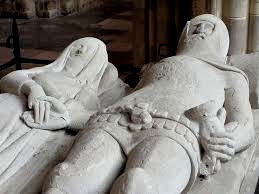
Hungry Paul enjoys holding the hand of hospitalized Mrs. Hawthorne, “like Larkin’s poem, ‘An Arundel Tomb.’ “
Photos. The author photo appears on https://bookgig.com
The Sweet Roses toffee tin may be found on https://www.pinterest.com
A bog body from the National Museum of Ireland is featured here: https://www.pinterest.com
Milton Bradley’s The Game of Life is from http://www.toy-tma.com
The Arundel tomb photo appears on https://soulloveforever.com

